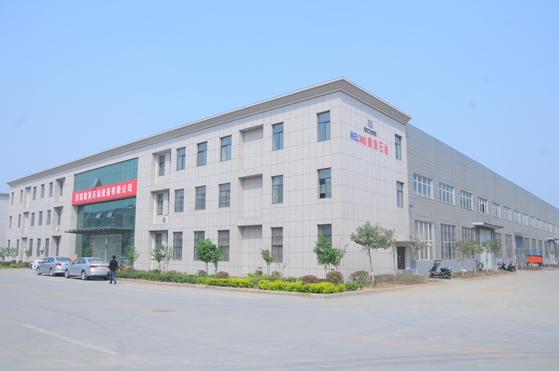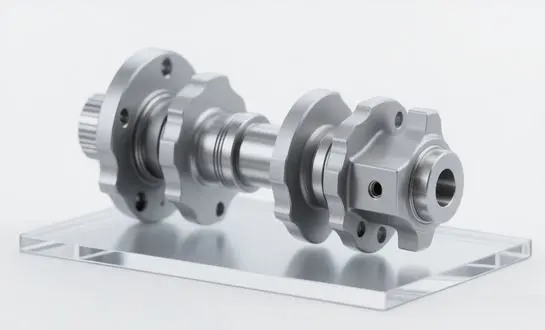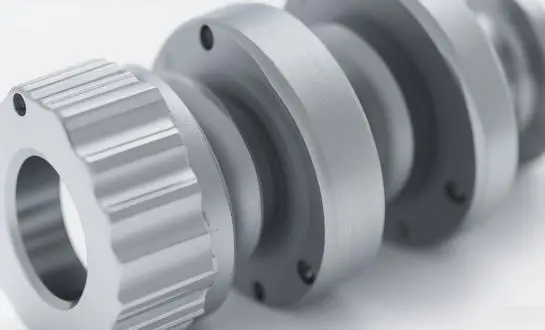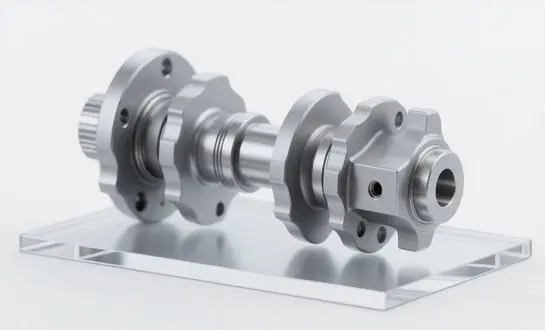Essential Components: What to Inspect Regularly?
To effectively maintain a mud motor, regular checks are the bedrock. Prioritising essential parts allows you to see problems before they become big headaches. What you need to be sure of is this:
Rotor and Stator Assembly
The rotor and stator are the heart of your drilling mud motor. Inspect these components for signs of wear, such as: - Excessive wear on the rotor's external surface - Cracks or deformations in the stator rubber lining - Proper fit between rotor and stator - Even wear patterns across the assembly
Bearing Assembly
Bearings are critical for smooth operation. Check for:
- Proper lubrication
- Signs of overheating or discoloration
- Unusual noise during operation
- Excessive play or looseness
Transmission Section
The transmission section transfers power from the rotor to the drill bit. Inspect for:
- Integrity of universal joints
- Proper alignment of transmission components
- Wear on transmission shafts
- Condition of seals and O-rings
Hydraulic Components
Ensure the hydraulic system is functioning correctly by checking:
- Fluid levels and quality
- Pressure readings within specified ranges
- Condition of hoses and connections
- Performance of valves and pumps
Troubleshooting Common Issues: Expert Tips Revealed
Even with regular maintenance, issues can arise. Here are some common problems and expert tips for resolving them:
Reduced Power Output
If your drilling mud motor is not delivering the expected power:
- Check for wear in the rotor and stator assembly
- Inspect the transmission section for signs of damage
- Verify that hydraulic pressure is within the optimal range
- Ensure the mud quality is appropriate for the motor specifications
Excessive Vibration
Vibration can indicate several issues:
- Examine the rotor for bends or imbalances
- Check the bearing assembly for wear or damage
- Inspect the drill string for proper stabilization
- Verify that the motor is correctly sized for the application
Fluid Leaks
Leaks can compromise performance and cause environmental issues:
- Inspect all seals and O-rings for damage
- Check for loose connections in the hydraulic system
- Examine the stator for cracks or separations
- Verify that all components are torqued to specifications
Inconsistent RPM
If the motor's speed is fluctuating:
- Check the mud flow rate and pressure
- Inspect the rotor and stator for signs of wear or damage
- Examine the transmission section for proper function
- Verify that the motor is not being operated outside its design parameters
Preventive Measures: Extending Your Mud Motor's Lifespan
Proactive maintenance is key to maximizing the lifespan of your drilling mud motor. Implement these preventive measures to ensure long-term performance:
Regular Cleaning and Inspection
- Establish a routine cleaning schedule to remove debris and buildup
- Conduct thorough visual inspections after each use
- Document findings and track changes over time
- Use appropriate cleaning agents that won't damage components
Proper Storage and Handling
- Store motors in a clean, dry environment when not in use
- Use protective covers to prevent contamination
- Handle motors carefully during transport to avoid impact damage
- Follow manufacturer guidelines for long-term storage
Fluid Management
- Use high-quality drilling fluids that meet motor specifications
- Monitor and maintain proper fluid viscosity and solids content
- Implement effective filtration systems to remove contaminants
- Regularly test and adjust fluid properties as needed
Operator Training and Best Practices
- Provide comprehensive training on proper motor operation
- Encourage operators to report any unusual performance issues
- Implement a system for sharing best practices across teams
- Stay updated on manufacturer recommendations and industry standards
Predictive Maintenance Techniques
- Utilize vibration analysis to detect early signs of wear
- Implement oil analysis programs to monitor internal component health
- Consider using thermal imaging to identify potential hot spots
- Explore the use of data logging and analytics for performance trends
Conclusion
Paying close attention to detail and taking the initiative are necessary for the continuing maintenance of your drilling mud motor. You may increase the performance, lifetime, and reliability of your mud motor, as well as decrease unanticipated downtime, by following this detailed checklist and using the professional advice given. The keys to keeping your mud motor a dependable and effective instrument for drilling operations are regular inspections, timely troubleshooting, and preventative actions.
Call to Action
The importance of mud motors to your drilling operations is something that we at Welong well grasp. Because we are dedicated to excellence and constant improvement, our mud motors can endure the harshest environments without sacrificing performance. You may have faith in our goods knowing that they are up to par with industry standards thanks to our API 7-1 accreditation and ISO 9001:2015 certification. Try out your drilling efforts with a top-notch mud motor that has been well-maintained. Contact our team of experts today at oiltools15@welongpost.com to learn more about our mud motor solutions and how we can help optimize your drilling operations for long-term success.





